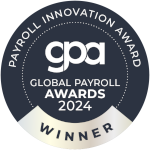
The Queens Speech in October unveiled a new bill looking at the distribution of tips by employers to employees. The new Employment (Allocation of Tips) Bill will mean that workers in the hospitality will receive 100% of their tips. The intention of the Bill is to make it perfectly transparent to customers how the tips they leave, are shared out amongst the employees.
Recent high profile cases have highlighted how some employers have used tips to supplement salary, including bringing contractual payments in line with National Minimum Wage rates.
It has long been the Governments’ intention to legislate to ensure that tips left by customers are received by employees. Indeed, in May 2016 the Government launched a consultation document on tipping gratuities, cover and service charges.
Although the results of the consultation were never published, it is now clear that the Government are wanting to legislate the principles set out in the consultation, these being;
- Ensure transparency to consumers that discretionary payments for service are just that, discretionary
- Ensure that workers receive their fair share from discretionary payments for service
- Increase the transparency for customers and workers regarding the treatment of discretionary payments
Tips are left by customers in many different ways, cash directly to the employee, cash left on the table and pooled, tip added to the bill before paying, discretionary suggested tip and compulsory tip.
Cash tips retained by the employee should be reported by the employee to HMRC and they will then be taxed through their tax code. The employer, very rarely gets involved with cash tips.
What the legislation is seeking to enforce is that 100% of the tips left by a customer on a bill payment (credit card payment) or a suggested discretionary payment (credit card) are passed over to the employees.
It has been common for employers to deduct ‘costs’ from such payment, for instance handling charges or credit card fees. The legislation will put a stop to this.
How can employers recoup costs if not from the tips themselves?
If legislation puts a stop to deductions from the tips to cover processing and admin costs, it will be leaving employers out of pocket. So what can an employer do to ‘balance the books’?
The answer is an effective Tronc scheme.
HMRC have long accepted that if the employer is not allocating or directly allocating the payments to the employee, only income tax is chargeable on the tips.
Care should be exercised that the employer is divorced form the decision making on the distribution of the tips. To this end it is vital that a Troncmaster is appointed. This can be the restaurant manager (but not the owner or a director) whose responsibility it is for deciding on the allocation of funds to the employees, or it could be an independent third party.
The Troncmaster must either apply to HMRC for a separate PAYE scheme through which to process the tips, and deduct Income Tax, but not National Insurance Contributions (NIC), or an external Troncmaster is appointed.
Benefits of a third party Troncmaster
The benefit of an external Troncmaster, such as Dataplan Troncmaster services, is that they can administer the payment of tips in such a way that tips and gratuities left by customers (and held in the employers’ bank account) can be effectively and efficiently accounted for through the employers’ payroll. This does not mean, however, that the employer is in anyway allocating or distributing the tips, rather that the tips can be paid in conjunction with the net pay and the Income Tax paid over to HMRC with the employer deducted tax and NIC.
This is a complex, for tax and NIC purposes, area but with due diligence and careful preparation, a Tronc scheme is by far and away the most efficient method for paying tips. There is no employees NIC and no employers NIC.
The devil will be in the detail in the legislation as the hopefully the Government will acknowledge that there are certain costs to an employer. Whether they allow costs such as credit card charges and payroll charges remains to be seen. It depends on how the legislation defines 100% of the tips.
For more information on tips and Tronc schemes, contact Paul Chappell Head of Legislation and Compliance at Dataplan Payroll Ltd on 03331 123456 or via our contact form
